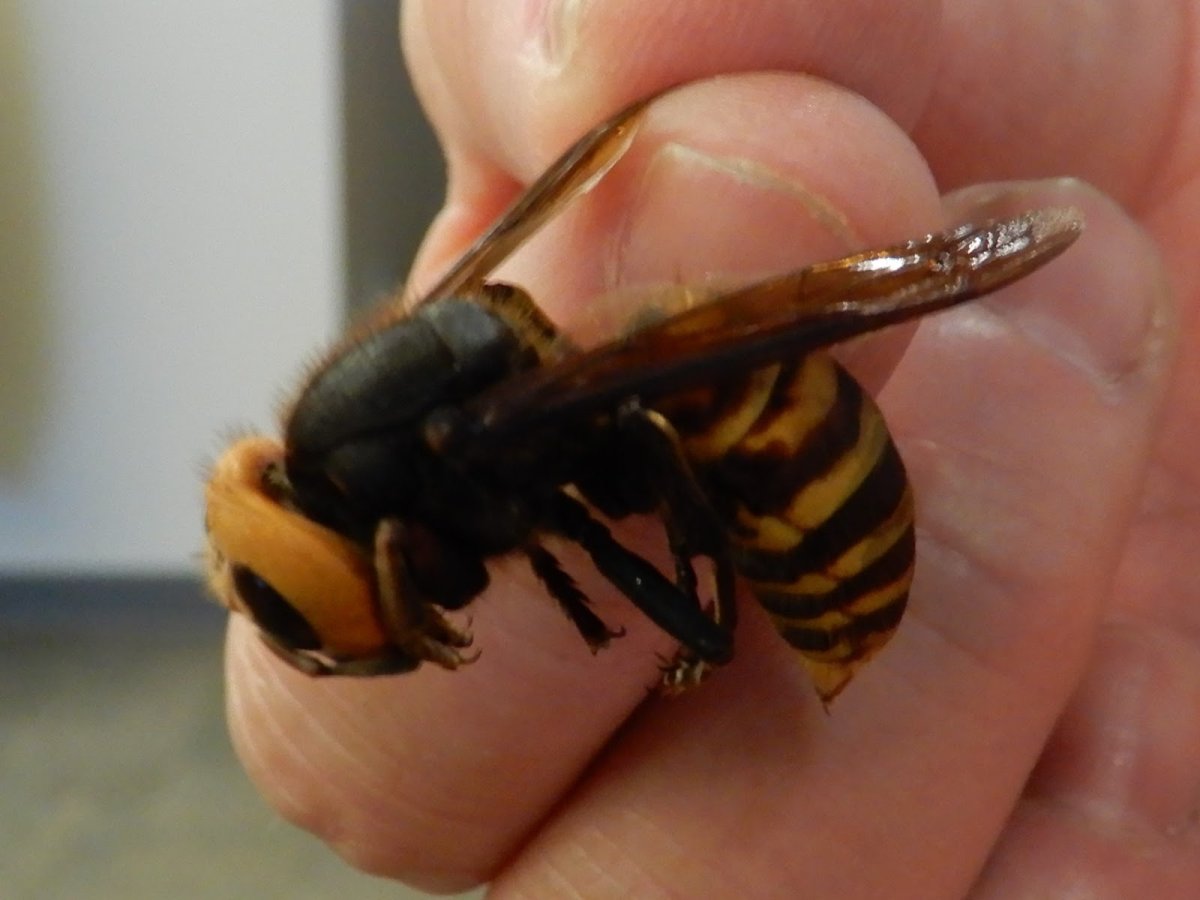An invasive species of honeybee-eating hornet has turned up just south of the B.C.-Washington border.

The Washington State Department of Agriculture (WSDA) said the Asian giant hornet (Vespa mandarinia) was found on Dec. 8 in the border town of Blaine.
The resident who reported the insect also told officials that they’d seen another live hornet buzzing in the area, and locals have been told to be on the lookout for more.
It is the first time the species has been found in Washington state, though not in the region.
In September, B.C.’s Ministry of Agriculture issued an alert after a number of the hornets were found in Nanaimo, prompting officials to scramble to locate and destroy their colony and queen.
It was the first case of the hornets being detected in B.C.

The hornets, which are not native to North America, are the largest in the world and can grow to a length of up to 3.5 centimetres. They are easily distinguished by their large, yellow heads.
While they are not typically aggressive towards humans, they can unleash a powerful sting.
The appearance of the hornets in the region is of particular concern because of their “voracious appetite” for honeybees, said the WSDA.
The agency says the hornets are capable of quickly destroying entire bee hives.
The hornets live in underground nests and are typically dormant during the winter.
Anyone who sees one of the Asian giant hornets in B.C. is urged to immediately contact the Invasive Species Council of B.C. at 1-888-933-3722, or through its website.




Comments